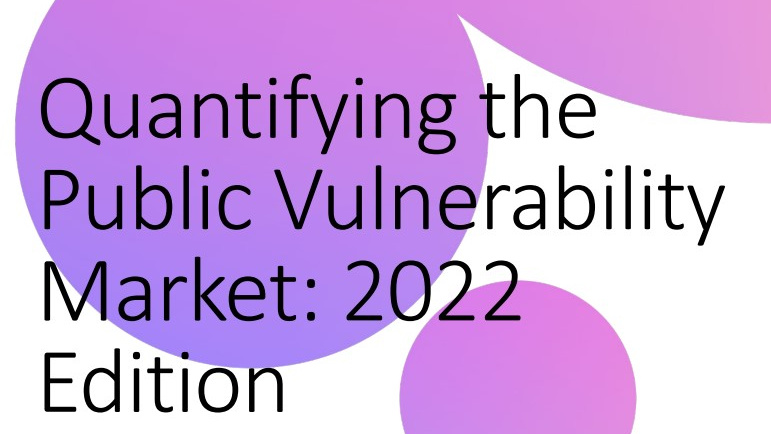Attackers targeting World Cup fans with 'Golden Cup' Android app loaded with spyware
"Cyber terrorists" behind a campaign targeting Israeli soldiers have shifted their focus to civilians by exploiting the 2018 World Cup


Researchers have uncovered an emerging cyber threat targeting Android device-owning football supporters just as the 2018 FIFA World Cup reaches its climax.
Believed to be part wider spyware campaign targeting members of the Israeli Defence Force (IDF) dating back to the start of 2018, ClearSky security researchers have discovered a variant aimed at targeting football supporters manifesting as an application named 'Golden Cup'.
Days after the IDF publshed a report blaming "Hamas cyber terrorists" for orchestrating a spyware campaign that lured Israeli soldiers into downloading malicious applications, security researchers have found further samples, manifesting principally as 'Golden Cup', now targeting civilians.
The original spyware campaign initially involved fake Facebook profiles asking IDF soldiers, as part of a seduction process, to download the malicious apps named 'GlanceLove' and 'WinkChat' to continue socialising.
Researchers at Symantec noted that given the original approach was "not a great success", the hacker's latest attempt involved a hurriedly created malicious World Cup app to offer users live scores and fixtures and distribute it to Israeli citizens as well as military personnel.
"We assume it was rushed because, unlike GlanceLove, it lacked any real obfuscation," its researchers Roy Iarchy and Eyal Rynkowski wrote on the cyber security company's official blog.
"Even the C&C [command-and-control] server side was mostly exposed with the file listing available for everyone to traverse through it. It contained approximately 8GB of stolen data."
Sign up today and you will receive a free copy of our Future Focus 2025 report - the leading guidance on AI, cybersecurity and other IT challenges as per 700+ senior executives
GoldenCup is a fairly innocent-looking app in that its code is aimed at executing the app's touted functionality as a scores hub, while also being geared towards collecting identifiers and some data from the host device.
Thorugh the use of a phased approach GoldenCup exploits its fairly innocuous design to get past Google's security processes and get listed on the Google Play Store.
After receiving a command from the C&C - communicating using a Message Queuing Telemetry Transport (MQTT) protocol - the app downloads a malicious .dex file that adds additional malicious capabilities. Using this delivery method, its developers can submit a seemingly-legitimate application to the Play Store, adding any malicious elements thereafter.
The first phase involves collecting device information, as well as a list of apps already installed on the device, before the app processes an "install app" command that downloads an encrypted zip file containing a second .dex file.
From this point, the spyware's functions span from collecting more information about the devices to recording phone calls. The attackers can track location, upload images and video files, upload contacts information, upload SMS message history, record audio using the microphone, and use the camera to capture bursts of snapshots.
These can either be run periodically or upon receiving a command from the C&C server.
"We were unable to find technical similarities or infrastructure overlap with a known threat actor," Clear Sky's research team said.
"However, we assess with medium certainty that the threat actor behind this campaign is Arid Viper based on the targeting of Israeli soldiers, type and character of fake personas on Facebook, and previous Arid Viper activity."
The emergence of a World Cup-related cyber threat is in keeping with malicious actors' tendencies to exploit contemporary or widely-talked about events in the public domain.
Researchers at Kaspersky, for instance, detected a rise in phishing attacks tied to the World Cup in the weeks leading up to the event, alongside a general rise in the number of football-related spam - detailing a series of observations including fake lottery win notifications, and emails from attackers impersonating tournament sponsors.
Norton Antivirus, meanwhile, Symantec's parent company, highlighted one example of a fake win phishing email, informing users they have won $1.8 million "In Russia 2018 World Cup Draw", that reached 26,000 users in its first seven days.

Keumars Afifi-Sabet is a writer and editor that specialises in public sector, cyber security, and cloud computing. He first joined ITPro as a staff writer in April 2018 and eventually became its Features Editor. Although a regular contributor to other tech sites in the past, these days you will find Keumars on LiveScience, where he runs its Technology section.
-
 Will autonomous robotics leap forward in 2026?
Will autonomous robotics leap forward in 2026?In-depth Connectivity and cost benefits remain barriers, despite breakthroughs in physical AI
-
 AWS and NTT Data team up to drive legacy IT modernization in Europe
AWS and NTT Data team up to drive legacy IT modernization in EuropeNews Partnership between AWS and NTT DATA aims to boost AWS European Sovereign Cloud capabilities
-
 Foreign states ramp up cyberattacks on EU with AI-driven phishing and DDoS campaigns
Foreign states ramp up cyberattacks on EU with AI-driven phishing and DDoS campaignsNews ENISA warns of hacktivism, especially through DDoS attacks
-
 A new 'top-tier' Chinese espionage group is stealing sensitive data
A new 'top-tier' Chinese espionage group is stealing sensitive datanews Phantom Taurus has been operating for two years and uses custom-built malware to maintain long-term access to critical targets
-
 ‘States don’t do hacking for fun’: NCSC expert urges businesses to follow geopolitics as defensive strategy
‘States don’t do hacking for fun’: NCSC expert urges businesses to follow geopolitics as defensive strategyNews Paul Chichester, director of operations at the UK’s National Cyber Security Centre, urged businesses to keep closer tabs on geopolitical events to gauge potential cyber threats.
-
 Three ways to evolve your security operations
Three ways to evolve your security operationsWhitepaper Why current approaches aren’t working
-
 Beat cyber criminals at their own game
Beat cyber criminals at their own gameWhitepaper A guide to winning the vulnerability race and protection your organization
-
 Quantifying the public vulnerability market: 2022 edition
Quantifying the public vulnerability market: 2022 editionWhitepaper An analysis of vulnerability disclosures, impact severity, and product analysis
-
 Same cyberthreat, different story
Same cyberthreat, different storyWhitepaper How security, risk, and technology asset management teams collaborate to easily manage vulnerabilities
-
 Business value of ServiceNow security operations
Business value of ServiceNow security operationsWhitepaper Experience transformational gains from automating workflows and data-sharing among IT, security, and risk teams to rapidly remediate threats